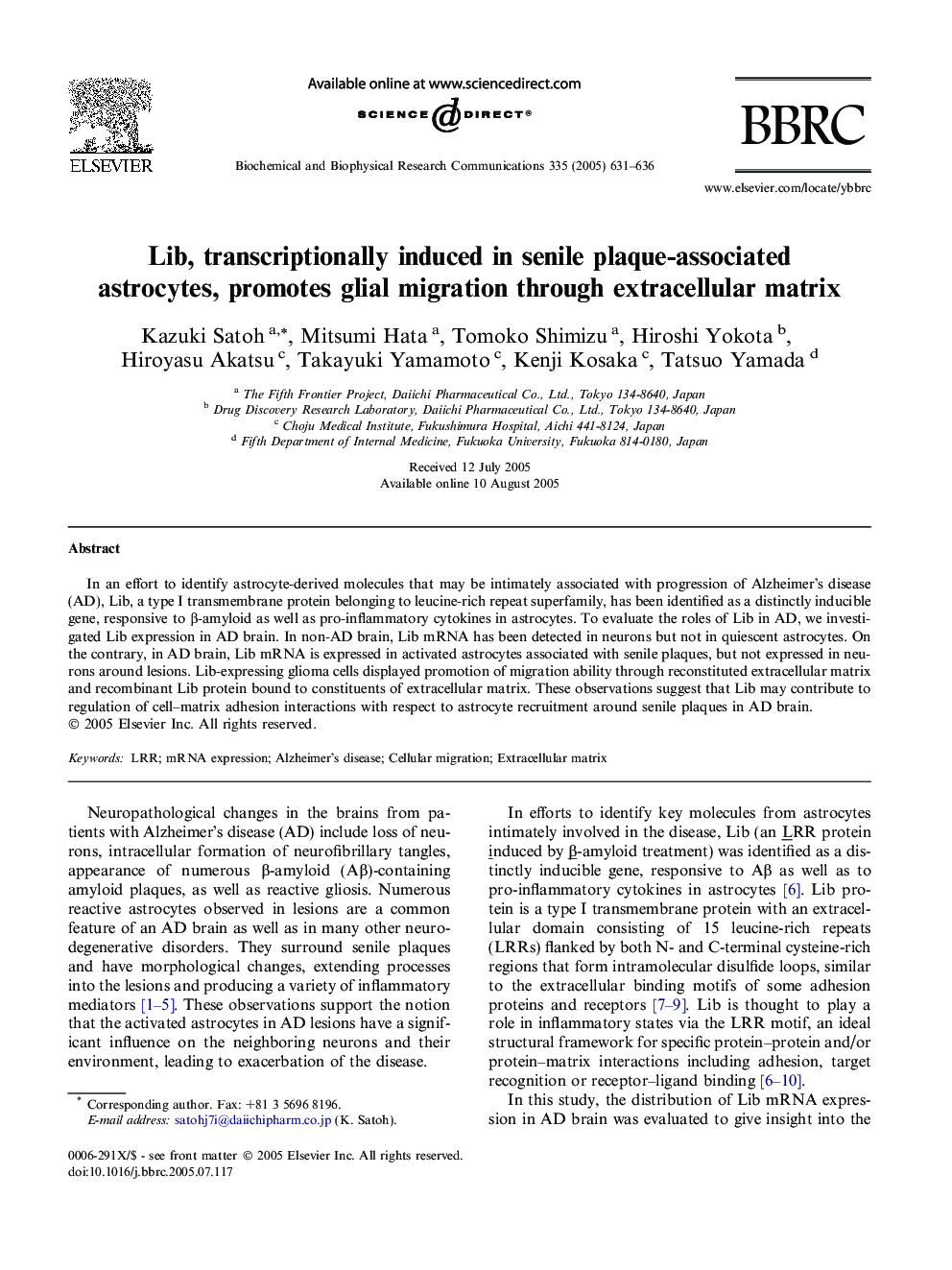| Article ID | Journal | Published Year | Pages | File Type |
|---|---|---|---|---|
| 10768099 | Biochemical and Biophysical Research Communications | 2005 | 6 Pages |
Abstract
In an effort to identify astrocyte-derived molecules that may be intimately associated with progression of Alzheimer's disease (AD), Lib, a type I transmembrane protein belonging to leucine-rich repeat superfamily, has been identified as a distinctly inducible gene, responsive to β-amyloid as well as pro-inflammatory cytokines in astrocytes. To evaluate the roles of Lib in AD, we investigated Lib expression in AD brain. In non-AD brain, Lib mRNA has been detected in neurons but not in quiescent astrocytes. On the contrary, in AD brain, Lib mRNA is expressed in activated astrocytes associated with senile plaques, but not expressed in neurons around lesions. Lib-expressing glioma cells displayed promotion of migration ability through reconstituted extracellular matrix and recombinant Lib protein bound to constituents of extracellular matrix. These observations suggest that Lib may contribute to regulation of cell-matrix adhesion interactions with respect to astrocyte recruitment around senile plaques in AD brain.
Related Topics
Life Sciences
Biochemistry, Genetics and Molecular Biology
Biochemistry
Authors
Kazuki Satoh, Mitsumi Hata, Tomoko Shimizu, Hiroshi Yokota, Hiroyasu Akatsu, Takayuki Yamamoto, Kenji Kosaka, Tatsuo Yamada,
